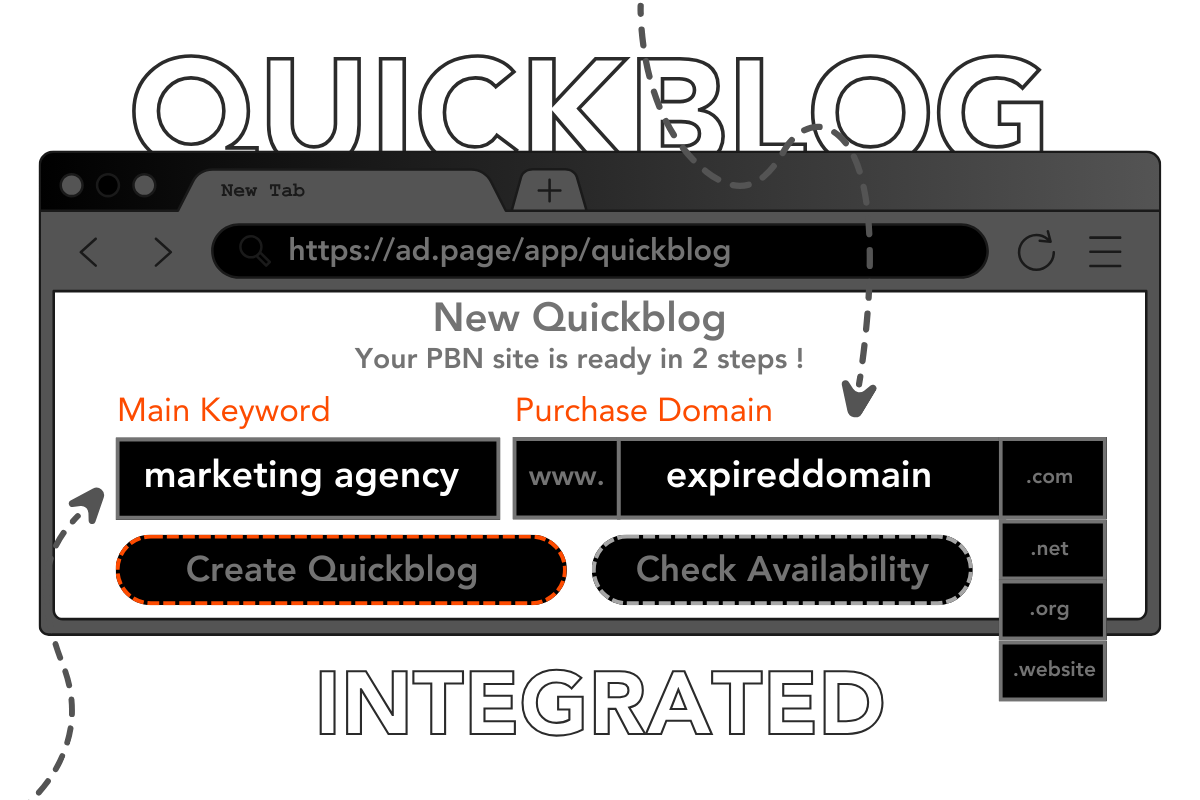Access Keyword Research
with API
Our API access is designed to be user-friendly and straightforward, making it effortless for you to integrate our services into your existing systems.




Explore the premier marketplace for digital growth. Acquire and trade niche SEO keywords for superior online visibility, or delve into the world of expired domains to amplify your digital presence.
Unlock the potential of aged domains. Our marketplace for expired domains offers a strategic avenue for users to discover and acquire domains with established histories. This unique opportunity enables you to build authoritative online presence, harness the strength of existing backlinks, and significantly enhance your digital footprint, giving you a competitive edge in the digital realm.

Explore our comprehensive marketplace dedicated to SEO and keyword marketing strategies, offering a platform for buying and selling at competitive prices on a global scale. With a diverse range of topics available in multiple languages, find the ideal solution to enhance your digital marketing efforts.
Digital marketing thrives on the strategic use of “buyer keywords”, which are crucial in bridging the gap between potential customers and the products or services they seek. These keywords transcend ordinary search terms, emerging as potent indicators of a user’s purchase intent. By focusing on these keywords, businesses can significantly boost their chances of transforming website visitors into loyal customers.
Buyer keywords are those select search terms used by prospective buyers who are actively looking to purchase. These keywords stand apart due to their specificity and the clear intent they convey. Unlike broader informational or navigational keywords, Buyer Keywords often include definitive phrases like “buy”, “order”, or “purchase”, signaling a readiness to engage in a transaction.
To effectively leverage buyer keywords, understanding their distinct types is crucial:
Incorporating buyer keywords into your digital marketing strategy requires a nuanced understanding of your target audience’s search habits and preferences. By aligning your content and SEO efforts with these targeted keywords, you can effectively guide potential customers through their buying journey, from initial interest to final purchase. This strategic approach not only enhances your online visibility but also positions your business as a go-to source for customers ready to make informed purchasing decisions.
Informational keywords are used to research a particular product or service. They are typically broad and unspecific, such as “how to buy a car”. These types of keywords don’t necessarily lead to a purchase, but they do indicate the customer is looking for more information about a product or service.
Types of Informational Keywords
How
What
Guide
Tips
Where
Why
Quickly
Commercial keywords are words or phrases that are used to target ads to potential customers. These keywords are chosen based on the search queries that potential customers are likely to use when searching for a product or service.
Types of Commercial Keywords
Reviews
Best
Color
Size
Compare
Navigational keywords are used to find a specific website or product. These terms are usually quite specific, such as “Ford Taurus for sale”. Navigational keywords can lead to direct sales as customers are looking for a specific product or service.
Types of Navigational Keywords
Who
What
Buy now keywords are keywords used in Pay Per Click (PPC) campaigns which have been chosen by advertisers to target potential customers who are likely to purchase a product or service immediately.
These keywords are usually chosen because they are associated with a sense of urgency, such as “buy now“ or “order now.”
By targeting these customers, the advertiser is able to generate higher conversions, since customers are more likely to purchase right away rather than wait.
Types of Buy Now Keywords
Coupon
Discount
How to Buy Now
Sale
Best Place to Buy
On Sale
Purchase
Promo
Order
Transactional keywords are used to purchase a product or service. These terms are usually very specific and indicate the customer is ready to buy, such as “buy Ford Taurus”. These keywords typically lead to direct sales as they indicate the customer is ready to make a purchase.
Type of Transactional Keywords
Where to Buy
Order Online
Affordable
Near Me
How Much Is
Product search keywords are words or phrases used to narrow down a search for a particular product. They can be used in search engine queries to quickly find related products and information.
Product search keywords are typically descriptive and often include brand names, product categories, and product features.
Product search keywords can also be used in advertisements to draw attention to a particular product. By using the right keywords, businesses can target the right audience and increase their chances of making a sale.
Types of Product Search Keywords
Alternatives
Reviews
Best
Price Comparison
Vs.
Options
Our API access is designed to be user-friendly and straightforward, making it effortless for you to integrate our services into your existing systems.



